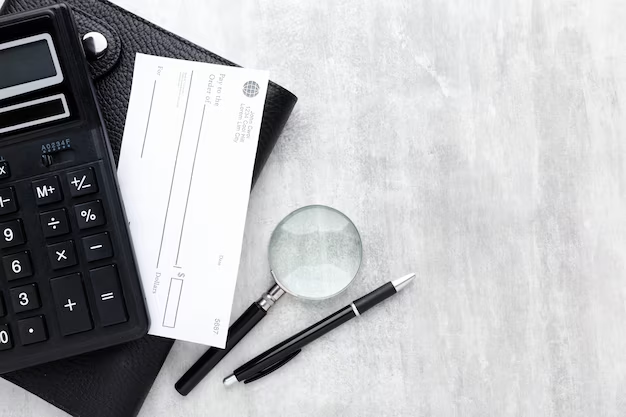How You Can Repair Your Credit Score for a Brighter Financial Future
Have you ever applied for a loan, only to be turned down because of your credit score? Or maybe you've been accepted but faced steep interest rates, making repayment a real burden. If so, you're not alone. Many find themselves grappling with credit challenges. The good news is that repairing your credit score is not an impossible task—it's achievable with a bit of knowledge and effort. This comprehensive guide will walk you through the process of understanding credit scores, identifying areas for improvement, and taking actionable steps to repair your credit.
Understanding Credit Scores: The Basics
What is a Credit Score?
A credit score is a numerical representation of your creditworthiness. Lenders use this score to gauge the risk of lending you money. Scores typically range from 300 to 850, where a higher score indicates a lower credit risk. This score influences your ability to secure loans, credit cards, mortgages, and even impacts rental applications and job prospects.
Factors Influencing Your Credit Score
Several factors contribute to your credit score. Understanding these can help you identify what areas need attention:
- Payment History (35%): Consistently making payments on time boosts your score.
- Credit Utilization (30%): The amount of credit you're using compared to your limit. Aim to keep this below 30%.
- Length of Credit History (15%): Longer credit histories usually result in higher scores.
- New Credit (10%): Opening multiple new credit accounts in a short period can lower your score.
- Types of Credit Used (10%): A diverse mix, such as installment loans and credit cards, adds points to your score.
Checking Your Credit Report for Errors
Why It's Crucial
Before embarking on your credit repair journey, it's critical to know where you stand. Requesting your credit report allows you to spot mistakes that may be dragging your score down.
How to Obtain Your Credit Reports
You are entitled to one free credit report every 12 months from each of the three major credit bureaus: Equifax, Experian, and TransUnion. Consider staggering these requests every four months for regular oversight.
Identifying and Disputing Errors
Scrutinize your credit report for errors, such as incorrect personal information, accounts you don't recognize, or inaccurate payment histories. Should you identify any mistakes, file a dispute with the relevant credit bureau. They are obliged to investigate and rectify verified errors.
Crafting a Strategic Plan for Credit Repair
Establishing Goals
Set clear, realistic goals. Whether it’s raising your credit score by a specific number of points or eradicating debt, having goals keeps you focused.
Create a Budget
A personal budget helps manage expenses and ensure you’re saving enough to meet payment obligations. Allocate funds especially towards clearing high-interest debts.
Prioritize Debt Repayment
Identifying which debts to tackle first is vital. Some opt for the snowball method, focusing on smaller debts to quickly score wins. Others prefer the avalanche method, prioritizing high-interest debts to minimize overall payback.
Pay Bills on Time
Consider setting up automatic payments or reminders to prevent late payments. Consistency is key in enhancing your payment history, the largest factor in your credit score.
Strategies to Boost Your Credit Score
Lower Your Credit Utilization Ratio
To calculate credit utilization, divide your total credit card balances by your total credit limits. Aim to pay down existing card balances and request credit limit increases to improve this metric.
Avoid Closing Old Accounts
The length of your credit history plays a part in your score. Keeping older accounts open increases your average credit age, positively impacting your score.
Limit New Credit Applications
Each credit inquiry can temporarily drop your score. Apply for credit only when necessary. If shopping for a mortgage or auto loan, multiple inquiries in a short period can be treated as one if handled wisely.
Using Credit Repair Agencies: A Careful Consideration
Evaluating the Option
Credit repair agencies offer services to dispute errors and negotiate with creditors on your behalf. If considering this route, research thoroughly to avoid scams.
DIY Credit Repair vs. Professional Help
While agencies can expedite the process, remember that credit repair can be achieved independently. With the right knowledge and patience, managing your own credit scores is entirely feasible and cost-effective.
Sustaining a Healthy Credit Score
Maintaining good credit habits is crucial once your score improves:
- Monitor Your Credit Regularly: Stay abreast of any changes so you can swiftly tackle discrepancies.
- Practice Financial Discipline: Live within your means and avoid unnecessary debt.
- Continually Educate Yourself: Financial literacy is a tool that empowers better decision-making.
Key Takeaways: Your Path to Financial Success 📝
- Check Your Credit Report: Regularly review for mistakes and resolve them promptly.
- Establish Payment Routines: Prioritize on-time payments for all your debts.
- Manage Debts Strategically: Identify priorities and tackle debts with a structured approach.
- Utilize Credit Sparingly: Aim to keep credit usage below 30% of your total limits.
- Keep Old Accounts Open: Where feasible, maintain accounts with a long credit history.
- Limit New Credit: Apply judiciously to avoid unnecessary inquiries.
Repairing your credit score is a journey, but one worth embarking on for financial stability and freedom. The road may be rocky, but with determination, informed steps, and perseverance, you can transform your credit profile into an asset, not a liability. Your future self will thank you for the dedication and effort you invest today. 🌟

Related Topics
- A.i Credit Repair
- Are Credit Repair Companies Legit
- Are Credit Repair Companies Legitimate
- Are Credit Repair Companies Worth It
- Can You Repair a Credit Card Tha's Coming Apart
- Do Credit Repair Agencies Work
- Do Credit Repair Companies Work
- Do Credit Repair Services Really Work
- Do Credit Repair Services Work
- Do It Yourself Credit Repair
